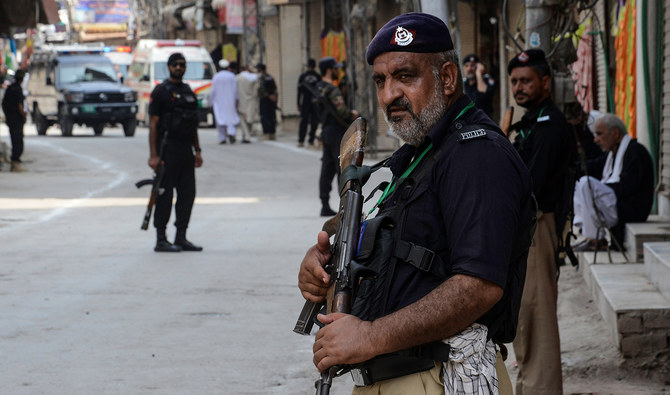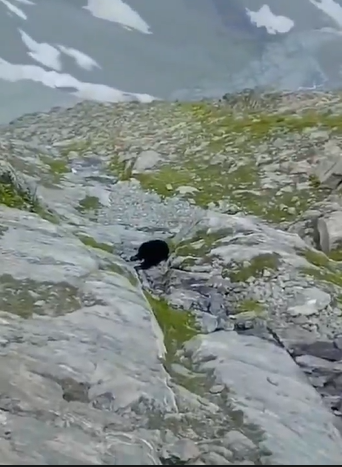ISLAMABAD: The government of Pakistan’s northwestern Khyber Pakhtunkhwa (KP) province has said police department officials tasked with security-related duties must undergo psychological evaluation, after a police officer opened fire at a school bus, killing one child and injuring five others.
The incident took place in Swat Valley, a stronghold of the Pakistani Taliban, formally called the Tehreek-e-Taliban Pakistan (TTP), until 2019 when security forces cleared the region of militants after military operations. In 2012, Pakistani Nobel laureate Malala Yousafzai was also shot by the TTP in the same valley.
The shooter in Tuesday’s violence was constable Alam Khan, who was responsible to watch over a private school. He was immediately arrested after he opened fire at the bus. The KP government subsequently formed an inquiry committee to investigate Khan’s motives and carry out a background check to see if he had links with banned groups or family issues and psychological illnesses.
“In view of the firing incident on a school van of Sangota Public School Manglor, Swat, on 16.05.2023 at about 1350 hrs, reportedly by a police constable assigned security duties, it would be appropriate that all personnel assigned such duties in public places (as well as others) undergo a security profile and psychological review,” a notification from KP’s home and tribal affairs department said on Wednesday.
“It is, therefore, requested that all concerned may kindly be directed to undertake such a review urgently and it is further requested that such reviews after every six months may be made part of the SOPs (standard operating procedures).”
Gun violence targeting children is rare in Pakistan.
However, nearly 150 people, mostly students, were killed in 2014 when TTP militants attacked a school in Peshawar, the capital of Khyber Pakhtunkhwa.
Since then, authorities have deployed police at schools across the country, especially in the volatile northwest where the Pakistani Taliban have stepped up attacks on security forces in recent months.

















